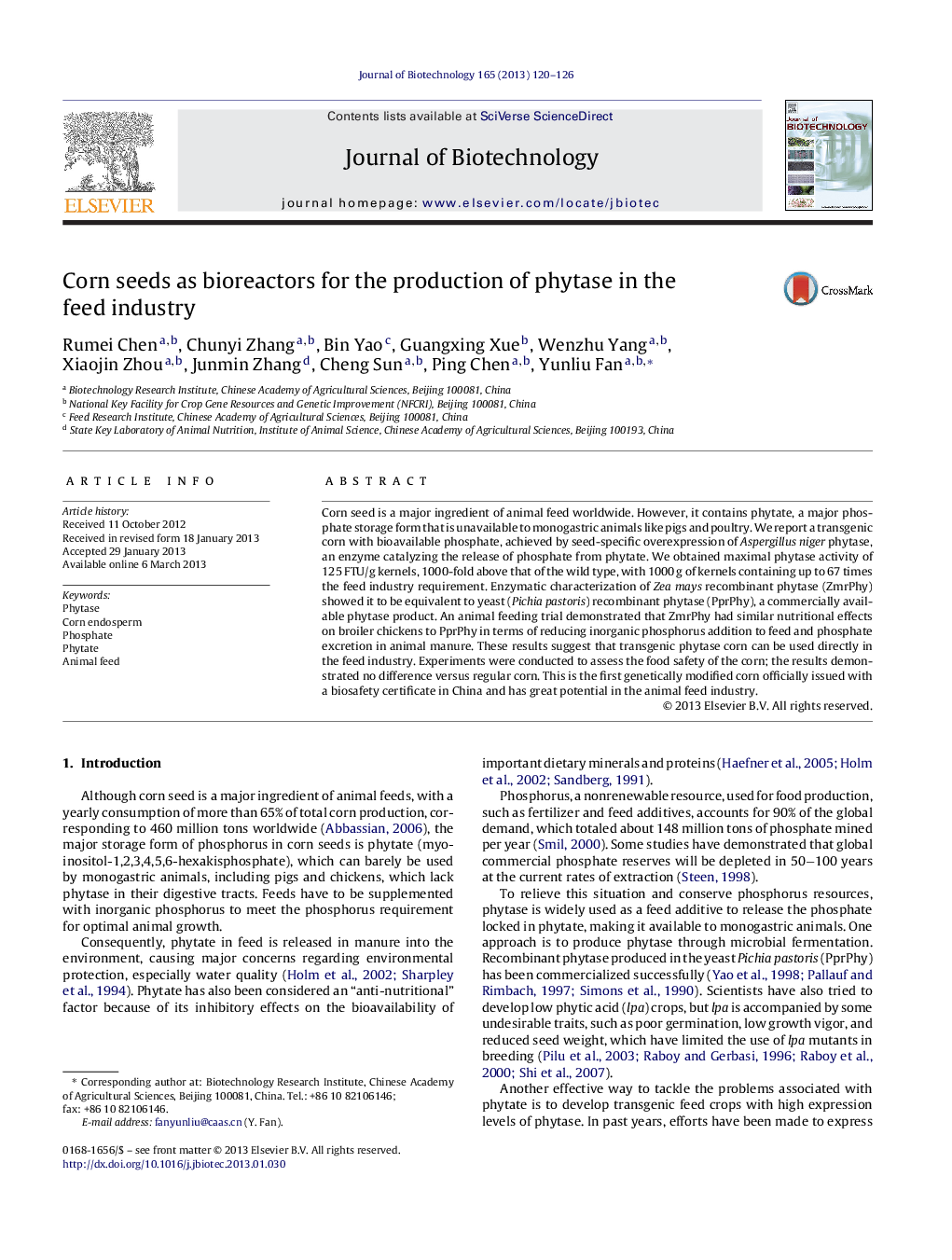| کد مقاله | کد نشریه | سال انتشار | مقاله انگلیسی | نسخه تمام متن |
|---|---|---|---|---|
| 23528 | 43446 | 2013 | 7 صفحه PDF | دانلود رایگان |

Corn seed is a major ingredient of animal feed worldwide. However, it contains phytate, a major phosphate storage form that is unavailable to monogastric animals like pigs and poultry. We report a transgenic corn with bioavailable phosphate, achieved by seed-specific overexpression of Aspergillus niger phytase, an enzyme catalyzing the release of phosphate from phytate. We obtained maximal phytase activity of 125 FTU/g kernels, 1000-fold above that of the wild type, with 1000 g of kernels containing up to 67 times the feed industry requirement. Enzymatic characterization of Zea mays recombinant phytase (ZmrPhy) showed it to be equivalent to yeast (Pichia pastoris) recombinant phytase (PprPhy), a commercially available phytase product. An animal feeding trial demonstrated that ZmrPhy had similar nutritional effects on broiler chickens to PprPhy in terms of reducing inorganic phosphorus addition to feed and phosphate excretion in animal manure. These results suggest that transgenic phytase corn can be used directly in the feed industry. Experiments were conducted to assess the food safety of the corn; the results demonstrated no difference versus regular corn. This is the first genetically modified corn officially issued with a biosafety certificate in China and has great potential in the animal feed industry.
► Transgenic phytase corn inbred line was generated.
► Phytase activity could fully satisfy feed industry requirements, as demonstrated by an animal feeding trial.
► Biosafety analysis for the Phytase corn were conducted.
► Corn elite inbred line derived from the Phytase corn is ready for the feed industry.
Journal: Journal of Biotechnology - Volume 165, Issue 2, 20 May 2013, Pages 120–126